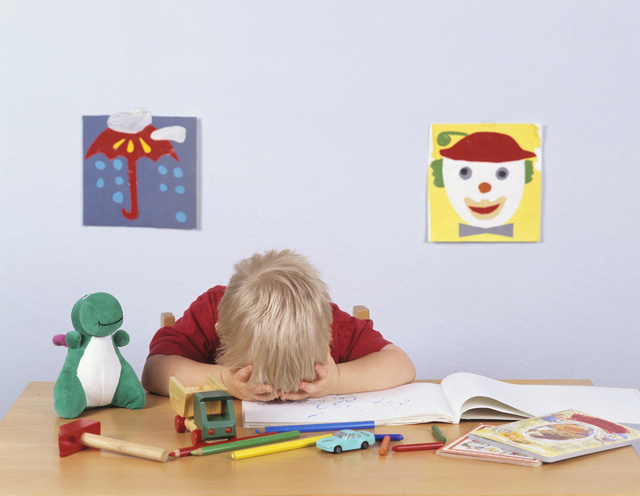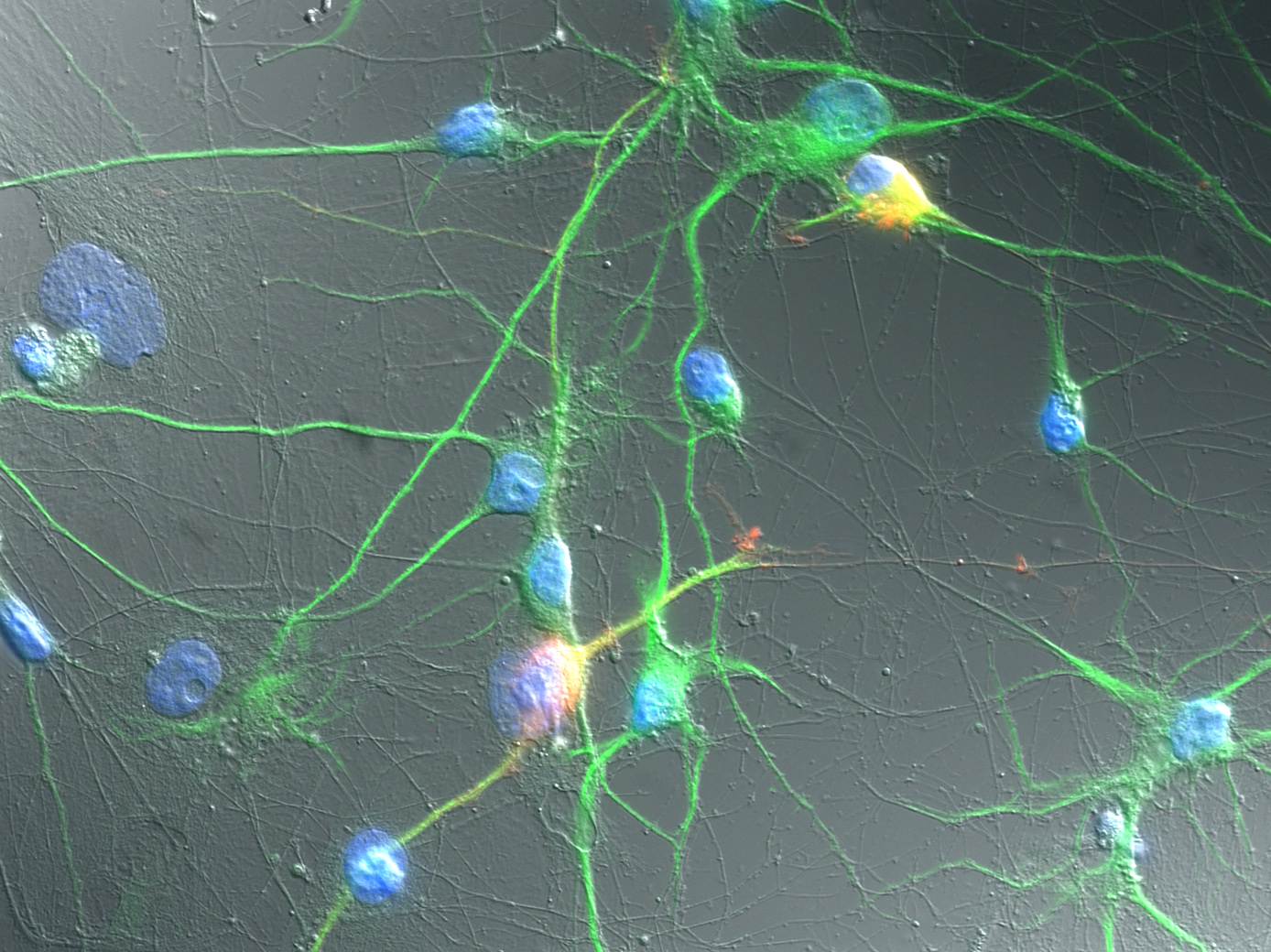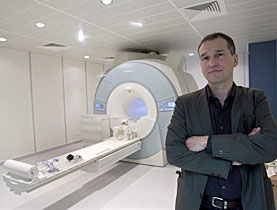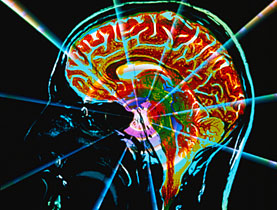Shame not unhealthy, philosophers say

Three Geneva researchers find that shame, far from being a negative emotion, is something positive that can have great moral value for individuals and society.
Julien Deonna, Raffaele Rodogno and Fabrice Teroni are philosophers who belong to the Swiss National Centre for Competence in Research (NCCR) in the Affective Sciences, Geneva. They have published a book about one particular emotion, shame, that is sure to be controversial.
The title of the book, which is published in English by Oxford University Press, is “In defence of shame”. So why should shame need to be defended?
“It needs to be defended against the widespread idea in psychology that shame is a morally bad emotion that we should do our outmost to get rid of,” Deonna told swissinfo.ch. “There is no problem with shame in itself, but just sometimes with the values and reasons that trigger it.”
Yet many people think shame is bad and unproductive. Pop psychologists and self-help books urge people to get over “toxic shame” from their upbringing.
“We are told that we should do everything to feel good and avoid anything that might lower our self-esteem,” admitted Deonna. But he and his colleagues still think shame is good for you.
“What pop psychologists call ‘toxic shame’ we call ‘irrational shame’, and we agree it is detrimental to those who feel it,” explained Rodogno.
“In irrational shame, a person becomes attached to values that he or she cannot live up to and that therefore make him or her feel worthless – a failure and ashamed. The problem here is not so much with shame itself, but with the mechanisms by which we become attached to the ‘wrong’ set of values.”
Rodogno points to modes of upbringing and stigmatisation whereby entire groups of people, such as homosexuals, are made to identify with values which they simply cannot satisfy. “Members of these groups would clearly be better off becoming insensitive to shame caused by these values,” he conceded.
Why be ashamed?
So why do people feel ashamed anyway? It has often been said that shame is a social emotion, one we feel when we look bad in front of others.
But in their novel approach, the three Geneva philosophers see it as something very personal. They define it as the feeling you get when you realise you are not living up to your own values. Accordingly, a person’s identity is very much at stake in shame.
Yet shame can be constructive, they say, because it spurs you to improve your behaviour, so that you do live up to your values. You just need to make sure they are the right values.
Values differ a lot, of course, across societies and social groups. Shame may be a universal human experience, but it may also depend on culture to a great extent. Is shame in Switzerland and in Japan really the same thing?
“The answer to this question is both ‘yes’ and ‘no’,” said Teroni. “‘Yes’, because shame is always the realisation that what you are or what you have done is seriously below your expectations of yourself. This is the sense in which shame is universal.
“But the answer is also ‘no’, because the kind of circumstances and values that trigger shame may well differ from one geographical, cultural or historical context to the next. The way we express – or do not express – our shame in these different settings may also vary considerably.”
Naming and shaming
Even though the three Geneva philosophers are broadly in favour of shame, they don’t think that the vogue for “naming and shaming” wrongdoers as often advocated these days in the United States and some other countries is a good idea.
“We challenge the idea that public shaming has a clear connection with shame,” said Rodogno. “There is mounting empirical evidence that it is rather more likely to generate feelings of humiliation in the offender.”
Feelings of humiliation, he emphasises, trigger other-directed anger, vengefulness, and the feeling that one is being unfairly treated – which is really not the aim of the punishment.
Finally, by publicly humiliating a citizen, the state may be expressing the message that the offender is a lesser human being. “This is hardly in line with the assumption of equal dignity at the core of modern liberalism,” noted Rodogno.
The three authors are part of a multidisciplinary research team studying human emotions at the Geneva centre, which includes psychologists and anthropologists – some of whom have a tradition of being interested in shame.
Deonna, Teroni and Rodogno do not apologise for being interested in the topic as philosophers. Shame or emotion generally can be studied empirically, they say, but philosophers are interested in its link to morality and ethics.
“The philosopher of mind is interested in the essential nature of the different emotions, and not, as is usually the case in empirical science, with just correlations and statistics about the phenomena,” explained Deonna.
But in particular, he says, the part of philosophy called ethics is interested in shame because of the obvious links between this emotion and morality – morality being traditionally the province of the philosopher.
“Philosophy is very much interested in understanding the role shame plays in shaping our moral identities. It asks how shame helps us, if at all, to lead lives which are in keeping with our values.”
Throughout the history of philosophy there has been a discussion of what were traditionally called the “passions”.
Empirical study of the emotions has been comparatively recent, and mainly done by psychologists, beginning with the American William James. But Charles Darwin also studied emotion as part of his evolutionary theory: he was interested in human facial expressions and non-verbal communication of emotion, because animals have those behaviours too.
Today the study of emotion is interdisciplinary. While the psychology of emotion is well established, neuropsychologists have begun studying the possible localisation of emotions in the brain. Anthropologists, on the other hand, study emotion across cultures. Some say there is a universal inventory of emotions, while others claim emotions vary from culture to culture, and some are even sceptical about the universality of the concept “emotion” itself.
The Swiss National Centre for Competence in Research (NCCR) in the Affective Sciences is one of 20 institutes funded by the Swiss government to carry out research in cutting-edge fields of science, technology and scholarship.
It studies human emotion in an interdisciplinary way, and is a world leader in the field. There are philosophers, psychologists, neuroscientists, and scholars in the humanities and law working on its projects.
The NCCR has its headquarters at Geneva University. Several other universities and institutes are also involved.
Ten long-term projects are investigating core issues surrounding the way emotions are triggered and the changes this causes in the body; how people control their emotions, especially in the context of social norms; what happens when emotional control goes awry; and how emotion is involved in social interactions between individuals, groups and countries.
The NCCR emphasises practical applications of its research, particularly in relation to health, including stress and mood disorders, and in relation to reducing conflict, whether between individuals, groups and countries, in the home, the workplace or on the international stage.

In compliance with the JTI standards
More: SWI swissinfo.ch certified by the Journalism Trust Initiative



You can find an overview of ongoing debates with our journalists here. Please join us!
If you want to start a conversation about a topic raised in this article or want to report factual errors, email us at english@swissinfo.ch.